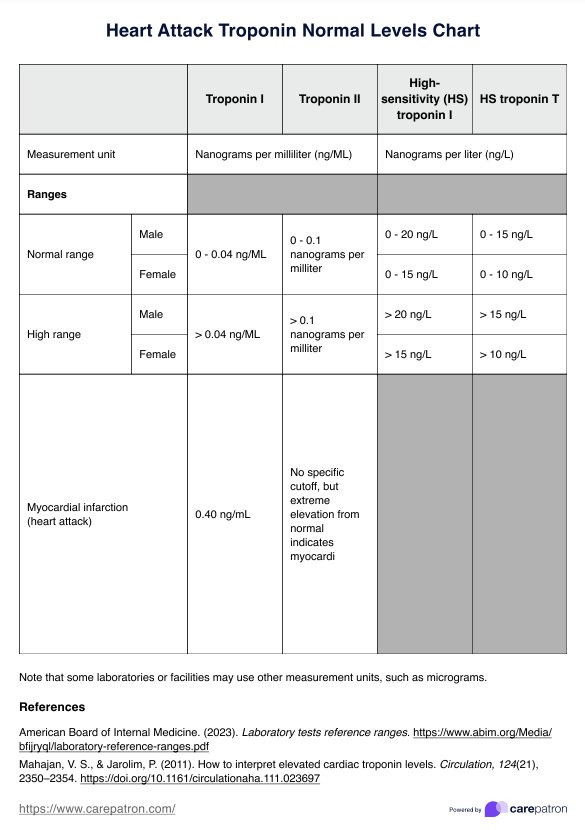When troponin I levels go above 0.04 ng/mL or troponin T goes above 0.01ng/mL for both males and females, it is already an indicator of heart damage. However, if it goes above 0.40 ng/mL, it is indicative of a probable myocardial infarction (heart attack) and should be considered an emergency.

Heart Attack Troponin Levels
Troponin level spikes indicate a heart attack – learn more about it and where levels should ideally stay. Use our template for a quick reference.
Use Template
Heart Attack Troponin Levels Template
Commonly asked questions
A troponin level of 500 ng/L (which is equivalent to 0.50 ng/mL) is significantly elevated and typically indicates myocardial injury, most commonly associated with a myocardial infarction (heart attack).
Normal troponin levels are usually very low, often falling below detectable limits, but can be measured in nanograms per milliliter (ng/ml). Typically, the normal reference range for troponin levels is between 0 and 0.04 ng/ml.
EHR and practice management software
Get started for free
*No credit card required
Free
$0/usd
Unlimited clients
Telehealth
1GB of storage
Client portal text
Automated billing and online payments











